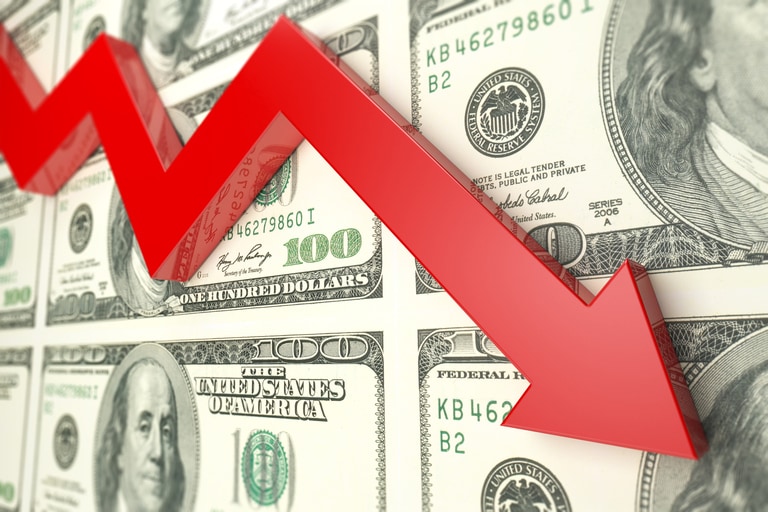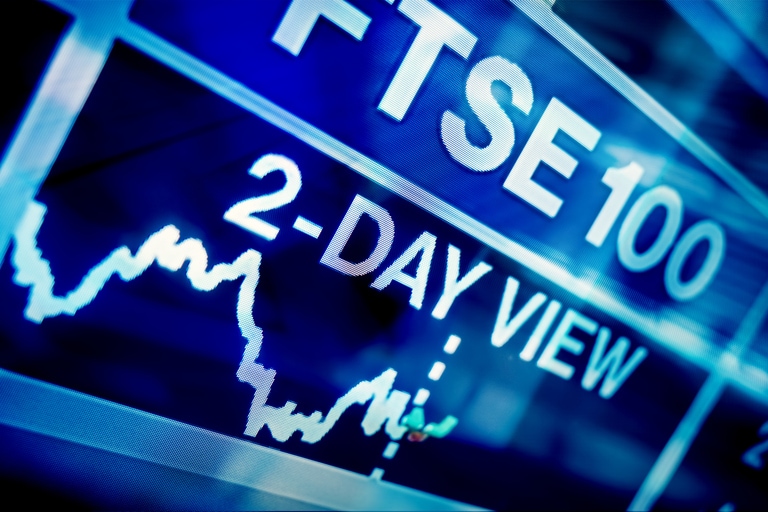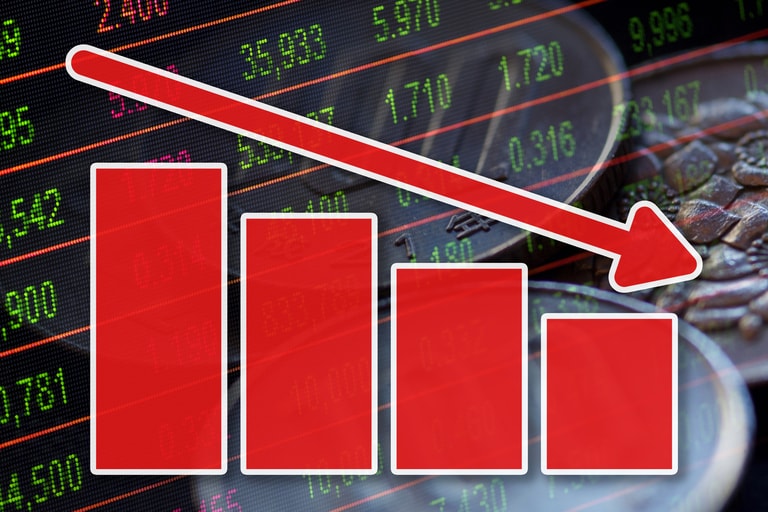It’s been another solid day for markets in Europe with the DAX and FTSE 100 leading the way, after the latest China trade numbers and some decent earnings reports bolstered confidence over the economic outlook.
Today’s US non-farm payrolls report threw an enormous monkey wrench into this narrative after a huge miss to the headline expectation, as the US economy added 266,000 jobs in April, well below the consensus of 1m that was predicted. If ever a market was complacent about a recovery story, then this afternoon’s number was a pretty good showcase for such a narrative.
The wider question is how did everyone call it so wrong, and to answer that we may have to look at the recent stimulus payments that were delivered in March. The simple answer could be that a lot of Americans may be content to delay their return to employment until their benefits money starts to run low. The increase in the participation rate to 61.7% and the rise in the unemployment rate to 6.1% would appear to support that narrative.
The DAX outperformance has been driven by earnings upgrades from Adidas and Siemens, which saw both companies upgrade their full-year outlook, while the FTSE 100 outperformance has been driven by record highs in commodity prices. Adidas shares have surged today after raising its guidance for the full-year. Operating profits came in at €704m, well above expectations of €579m, while the firm also raised its sales forecast for the year. A large part of the reason for this outperformance has been a strong rebound in China, and an expectation of higher sales volumes ahead of the resumption of big sporting events this summer. The company is also laying the groundwork to sell its Reebok brand later this year.
Siemens has also seen its shares move higher after raising its full-year guidance to between €5.7bn and €6.2bn, after reporting a 31% increase in Q2 EBITDA, driven by strong momentum in the auto sector, as well as its healthcare business.
The FTSE 100 has also had a good day, rounding off another decent week as it closes above 7,100 and its best level since February last year. The basic resource sector has led the gains with copper and iron ore prices hitting record highs, with Anglo American and Glencore leading the way.
The travel sector has been in focus today with the latest Q1 updates from IAG, owner of British Airways and Iberia and IHG, who own the Holiday Inn chain of hotels, among others. Unsurprisingly, it hasn’t been a great quarter for IAG, the airline posting a €1.1bn loss in its first quarter, as revenues slid 79% to €968m, while operating at 19.6% of 2019 capacity. Its outlook for Q2 was only marginally better, with the airline anticipating to run passenger capacity at 25% of 2019 levels.
International hotel chain IHG’s Q1 numbers are a little better, given improvements in its Chinese and US markets, where restrictions are much looser. Occupancy levels of 40%, while still low appear to be on an upward path, while group revenue per room is down 50.6% versus 2019 levels, the company is still opening new hotels, 56 in total in the last quarter, though some of these were offset by the closure of others in less profitable locations. EMEAA remains the laggard on the recovery front with RevPAR down 71.4% vs 2019, with Europe down 87%, and the UK down 75%. In contrast China was down 37.7% and the US was down 43%.
BT Group has also underperformed today, slipping lower ahead of next week's full year earnings update, probably due to some profit taking after the shares hit a 14-month high yesterday.
US
US markets appeared to struggle early on in trying to absorb today’s huge April non-farm payrolls miss, which saw 266,000 new jobs added, while March was revised lower to 770,000, from 916,000. The numbers were all the more puzzling given all the other data we’ve seen in the past few days and weeks. At first glance the miss would appear to be down to a reluctance of a lot of US workers to return to employment, while they still have the proceeds of their recent stimulus payments. The increase in the participation rate to 61.7% would appear to support that thought process, with unemployment also edging higher, but also suggest that the recovery in the US labour market is likely to be a lumpy one.
It didn’t take long for normal service to resume as the Dow and S&P 500 both edged up to another record high, as the Fed’s cautious approach to recent concerns about a V-shaped labour market recovery suddenly seemed to make sense. As Fed chair Jay Powell indicated only recently, one decent set of jobs numbers does not a recovery make, and today's surprise miss is a timely reminder of that. It's also a timely reminder to investors to never assume anything when it comes to financial markets and more importantly human incentives.
Beyond Meat shares have fallen sharply after revenue for Q1 came in at $108.2m, some way short of expectations of $113.2m, while losses came in double most estimates at $).42c a share. For Q2 the company projected revenues of between $135m and $150m, citing significantly reduced demand in its food service channels due to the pandemic.
Peloton saw its Q3 revenues come in ahead of expectations, which was welcome given its recent problems with respect to its Tread+, treadmill which the company belatedly recalled earlier this week. While revenues rose 141% from the same period last year, coming in at $1.26bn, there was little detail on the subject of yesterday's recall, and how much it is likely to cost the company. For all of the positive news over the improvements in its connected fitness and subscription revenues investors main focus appears to be that any costs from the recall are likely to be contained, and the current problems are no more than a blip, with the shares rebounding strongly, having fallen over 30% from its recent April peaks.
The sell-off seen in vaccine pharmaceutical stocks that we saw yesterday appears to be being reversed today as pushback against a patent waiver raises the prospect that while the Biden administration may want to go down this road, it is likely to be difficult to implement. Of course if President Biden really wanted to improve global supply he could always release the US’s stock of AstraZeneca vaccine which the US isn’t using, given its supply of Moderna and Pfizer BioNTech.
As a result, the likes of Moderna, BioNTech and CureVac are enjoying a little bit of a bounce back.
FX
The US dollar has come under further pressure after today’s disappointing payrolls report, which saw US 10-year yields spike sharply lower to 1.465%, down 13bps at one point, before pulling back just as quickly, though they are still lower on the day.
Today’s surprise payrolls miss has seen the euro continue its recent advance against the US dollar as the prospect of a more uneven US recovery undermines the greenback.
Commodity currencies have been among the best performers this week, due to the sharp rise being seen in the likes of copper and gold prices, with the Australian dollar at six-week highs.
The pound has also had a decent week as it looks to close back in on the 1.4000 level, after a week of uniformly positive economic data.
Commodities
While equity investors absorb today’s big payrolls miss, commodity prices are still telling a story of a big global rebound, with copper prices hitting new record highs, as concerns about future supply, and the appetite for copper in the transition towards renewables drives prices ever higher.
Gold prices hit their highest levels in almost three months in the wake of this afternoon’s surprise miss on April payrolls, as a weaker US dollar and lower US yields pushed prices higher.
Having peaked at just above $70 earlier this week, Brent crude prices have slipped back and look set to close lower for the third day in a row, though they are still higher on the week.
Disclaimer: CMC Markets is an execution-only service provider. The material (whether or not it states any opinions) is for general information purposes only, and does not take into account your personal circumstances or objectives. Nothing in this material is (or should be considered to be) financial, investment or other advice on which reliance should be placed. No opinion given in the material constitutes a recommendation by CMC Markets or the author that any particular investment, security, transaction or investment strategy is suitable for any specific person. The material has not been prepared in accordance with legal requirements designed to promote the independence of investment research. Although we are not specifically prevented from dealing before providing this material, we do not seek to take advantage of the material prior to its dissemination.







